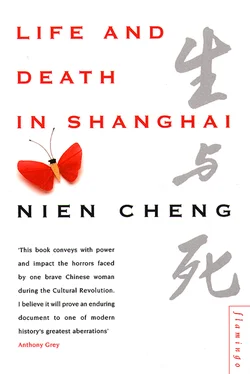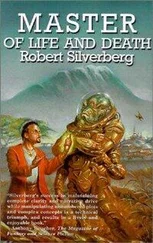In 1957, my husband died of cancer. A British general manager was appointed to succeed him. I was asked by Shell to become his assistant with the title of adviser to management. I worked in that capacity until 1966.
Successive British general managers depended on me to steer the company clear of the many pitfalls that often surrounded a capitalist enterprise maintaining an office in Maoist China. It was up to me to find ways to resolve the problems we had to face without either sacrificing the dignity of Shell or causing the Chinese officials to lose face. My job was to manage the staff, act as liaison between the general manager and the Shell Labour Union, analysing the union demands and working out compromises. I drafted the more important correspondence the company had with the Chinese government agencies which had to be in the Chinese language. Whenever the general manager went on home leave or to Peking for talks with Chinese government corporations, I acted as general manager. I thought myself fortunate to have a job I could do well and enjoyed the distinction of being the only woman in Shanghai occupying a senior position in a company of world renown.
In the spring of 1966, Shell closed its Shanghai office after negotiating with a Chinese government agency which signed an ‘Assets Against Liability Agreement’ with the company. We handed over our assets in China and the Chinese government agency took over our staff with the commitment to give them employment and provide retirement pensions. As a member of management, I was not included in the agreement; its scope was limited to our staff who belonged to the Shell Labour Union, a branch of the Shanghai Labour Union, which is a government organization for the control of industrial and office workers.
When the agreement was signed, my daughter, a young actress of the Shanghai Film Studio, was performing with her unit in North China. I thought I would make a trip to Hong Kong when she came back. But while I was waiting for her return, the Cultural Revolution was launched. My daughter’s group was hastily summoned back to Shanghai by the Film Studio to enable its members to take part in the Cultural Revolution. Since I knew that during a political movement government officials were reluctant to make decisions and that work in government departments generally slowed down, if not came to a complete standstill, I decided not to apply for a travel permit to Hong Kong and risk a refusal. A refusal would go into the personal dossier which the police kept on everyone. It might make future application difficult. So I remained in Shanghai, believing the Cultural Revolution would last no longer than a year, the usual length of time for a political campaign.
The tea cooled me somewhat. I got up to go into my bedroom next door, had a shower and lay down on my bed. In spite of the heat, I dropped off to sleep. The next thing I knew was that Chen Mah, my maid, was gently pushing me to wake me up.
I looked at the clock on my bedside table. It was only half past six, but sunlight was already on the awning outside the windows and the temperature in the room was rising.
‘Chi and another man from your old office have come to see you,’ Chen Mah said.
‘What do they want?’ I asked her drowsily.
‘They didn’t say. But they behaved in a very unusual manner. They marched straight into the living room and sat down on the sofa instead of waiting in the hall as they used to do before the office closed,’ Chen Mah said.
‘Who is the other man?’ I asked her as I headed for the bathroom. Chi, I knew, was the Vice-Chairman of our office branch of the Shanghai Labour Union. I had often conducted negotiations with him as it was part of my job. He had seemed a nice man: reasonable and conciliatory.
‘I don’t know his name. He hasn’t been here before. I think he may be one of the guards,’ Chen Mah said. ‘He’s tall and thin.’
From Chen Mah’s description, I thought the man was one of the activists of the Shell Union. We had no Party members. From the way the few activists in the Union behaved, I knew they were encouraged to act as watchdogs in our office for the Shanghai Labour Union. Since I had no direct contact with the activists who were mostly guards or cleaners, I learned of their activities mainly from the department heads.
There was a knock on the door. Lao Chao, my manservant, handed Chen Mah a tray and said through the half-open door, ‘They say the mistress must hurry.’
‘All right, Lao Chao,’ I said. ‘Tell them I’ll be down presently. Give them a cold drink and some cigarettes.’
I did not hurry. I wanted time to think and be ready to cope with whatever was coming. The visit of these two men at this early hour of the morning was unusual. However, in China, whenever one had to attend a meeting to hear a lecture or political indoctrination, one was seldom told in advance. The officials assumed that everybody should drop everything whenever called upon to do so. I wondered whether these two men had come to ask me to join one of their political indoctrination lectures. I knew the Shanghai Labour Union was organizing classes for the ex-staff of Shell so that they could be prepared for their assignment to work with lower pay in government organizations.
While I ate toast and drank my tea, I reviewed the events leading to the closure of the office of Shell and re-examined my own behaviour throughout the negotiations between the company and the Chinese government agency. Although I had accompanied the general manager to all the sessions, I had not taken part in any of the discussions. It was my job only to observe and advise the general manager afterwards when we returned to our office. I decided that if I were asked questions concerning Shell I could always procrastinate by offering to write to London for information.
I put on a white cotton shirt, a pair of grey slacks and black sandals, the clothes Chinese women wore in public places to avoid being conspicuous. When I walked downstairs I thought those who sent the men to call on me so early in the morning probably hoped to disconcert me. I walked slowly, deliberately creating the impression of composure.
When I entered the living room, I saw that both men were sprawled on the sofa with a glass of orange squash untouched on the table in front of each of them. When he saw me, Chi stood up from force of habit but when he saw that the activist remained seated, he went red in the face with embarrassment and hastily sat down again. It was a calculated gesture of discourtesy on the part of the other man to remain seated when I entered the room. In 1949, not long after the Communist Army entered Shanghai, the new policeman in charge of the area in which I lived had made the first of his periodical unannounced visits to our house. He brushed past Lao Chao at the front door, marched straight into the living room where I was and spat on the carpet. That was the first time I saw a declaration of power made in a gesture of rudeness. Since then, I had come to realize that the junior officers of the Party often used the exaggerated gesture of rudeness to cover up their feeling of inferiority.
I ignored Chi’s confusion and the other man’s rudeness, sat down on an upright chair and calmly asked them, ‘Why have you come to see me so early in the morning?’
‘We have come to fetch you to a meeting,’ Chi said.
‘You have been so slow that we will probably be late,’ the other man added and stood up.
‘What’s the meeting about?’ I asked. ‘Who has organized it? Who has sent you to ask me to participate?’
‘There’s no need to ask so many questions. We would not be here if we did not have authority. All the former members of Shell have to attend this meeting. It’s very important,’ the activist said. In a tone of exasperation, he added, ‘Don’t you know the Great Proletarian Cultural Revolution has started?’
Читать дальше












